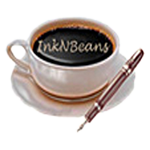Making the Word Count – by Jo, the Boss Bean

As long as there has been human history, there have been writers. They are our archivists and our entertainers. They began with charred sticks on the walls of caves and today they’re using pixels and the walls of Facebook to record their ideas, their observations, and their imaginations.
Of course, right behind our first writer and his burning sticks came someone to correct him, monitor him, establish his legal right to write upon that wall, and claim a portion of his profits – probably communicated with a club. And ever since, the publishers and editors have been clubbing writers over the head with rejection letters, requirements, rewrites, restrictive contracts and royalties.
Today, readers and writers are stepping out onto a new horizon. Today, hundreds of thousands of people have been given the opportunity to sidestep the gatekeepers and take their stories right to the person who matters most: the reader. Independent publishing and small presses all over the world have helped make that dream come true. It has enabled our caveman to hold his book in his hands, see his own name emblazoned on top, and nary a club or a contract or restriction hovers over his head.
The legacy of the legacy publishers still lingers, however, and nowhere more prominently than in the area of word count. For centuries, publishers have divided the wheat from the chaff by refusing to consider a work of less than a specific number of words. For those same centuries, writers have resorted to more tricks than a fifth grade boy writing his first essay. Eschewing contractions, multiple adjectives, internal dialogue, repetitive dialogue, clichés, and Wiki-graphs (long paragraphs explaining what something means in Wikipedia fashion) are all used to ratchet up the word count without advancing the story. The result is a dilution of the story and annoyed and distracted readers.
 In this wonderful age it’s unnecessary. You, our dear caveman, are competing with hundreds of thousands of other books and you aren’t going to win the reader with the biggest word count. You’re going to win by having a sharp, well told tale, with engaging characters and ideas that challenge the reader. If you can achieve that in forty thousand words, then hit SAVE and send it off to a beta reader, or two or three. If you need one hundred forty thousand words to tell your story, use them, but make sure every single one counts.
In this wonderful age it’s unnecessary. You, our dear caveman, are competing with hundreds of thousands of other books and you aren’t going to win the reader with the biggest word count. You’re going to win by having a sharp, well told tale, with engaging characters and ideas that challenge the reader. If you can achieve that in forty thousand words, then hit SAVE and send it off to a beta reader, or two or three. If you need one hundred forty thousand words to tell your story, use them, but make sure every single one counts.
Whether your story is forty thousand or one hundred forty thousand words, if it offers information or escapism, thrills, chills or laughter, someone is going to publish it. And someone is going to read it. So, as you prepare to complete your first novel or your fiftieth, write only as many words as you need to tell the story, and leave the padding on the chair under your bottom. When the story is told, and you know you have nothing left to say, add two more words: The End.
Good luck.
About the Publisher:
Jo, the Boss Bean of Inknbeans Press, started out counting beans instead of publishing them. Fifteen years ago, she predicted that technology was coming that would make the Big Six publishers obsolete. She vowed that as soon as the technology caught up with her ideas, she would leave her position in Hospital Administration and put together what she considered the ideal publishing environment; an organization that believed that authors are the biggest asset a publisher can have, and that they should be treated as partners in the process, not pests. Now in its third year, Inknbeans Press is proud to work with some of the best authors to come out of this new age of books. You might not have heard of all of our Beans yet…but you will.

Sage advice from an intelligent woman. Thanks for sharing your insight, Jo! 🙂
Hooray! I am so glad that Ms. Jo put into words what so many writers want to say when it comes to word count! Recently, I posted about this very same thing in Book Junkies. It isn't the amount of words you write that matters so much as making each word count!
I've read this argument for independent publishing before but never written as clearly. Let the writer write. Let the reader judge. The argument that publishers are needed to save the reader from wasting his money on poor work is also no longer an issue. By offering a few pages of each book for free the reader has the opportunity to judge, without having to pay first. Whether the reader then chooses to purchase the book, either for an eReader or in print form is then their choice, and no others. Thanks for the great article.
~Pam
Well said. As a writer of children's books I know the value of fewer words .. In my chapter books all chapters are written with 1000 words or less. And short stories get no more than that too. Novel writers could follow your advice.
A good exercise is to be instructed to describe a scene in ten words, but not doing so in more than five. In Spanish it still goes by amount of pages rather than word count. Though I am sure this will change, especially after some of García-Márquez best books are short novellas.
Thank you Inknbeans.
Bravo!